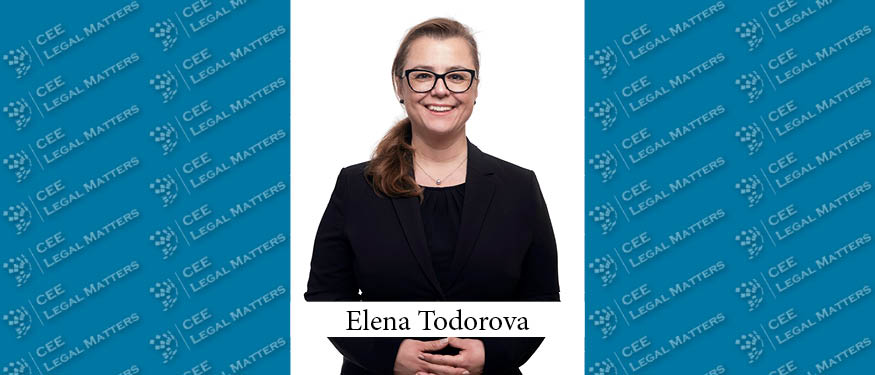Did you know that the CEE Q1 leaderboards are available through the Activity Rankings function of the CEELMDirect website?
Wolf Theiss Advises Allianz Bank Bulgaria on Synthetic Securitization Agreement with EIB Group
Wolf Theiss, working with Clifford Chance, has advised Allianz Bank Bulgaria on the review, negotiations, and regulatory compliance of a synthetic securitization agreement with the European Investment Bank Group.
Brief M&A Notes Entering 2024
How M&A lawyers add value to our clients deals? That’s our job and primary goal.
ESG in Bulgaria – Five Factors to Watch in 2024
One of the significant questions concerning ESG issues is the cost of transitioning to a more sustainable business environment. Will it result in increased financing costs and restricted access to new borrowing, or will it, on the contrary, lead to the development of new market segments and gradual change? While we cannot provide definitive answers to these questions, in this article, we will examine five ESG drivers and regulatory changes that will be pivotal in 2024. From the introduction of the New Green Asset Ratio to the Corporate Sustainability Due Diligence Directive (CSDDD/CS3D), we will explore the conditions associated with these new requirements and the potential penalties for non-compliance.
New Reasons to Tread Carefully in Bulgaria: A Buzz Interview with Mariya Papazova of PPG Lawyers
Regulatory updates – mostly driven by EU acts – keep lawyers on the toes in Bulgaria with digital markets being at the forefront of the country's Competition Protection Commission according to PPG Lawyers Partner Mariya Papazova.
DGKV and Spasov & Bratanov Advise on OTP Bank and DSK Bank's Financing for AES Geo Energy
Djingov Gouginski Kyutchukov and Velichkov, working with Kennedy Van der Laan, has advised OTP Bank and DSK Bank on a EUR 30 million financing for AES Geo Energy. Spasov & Bratanov advised AES Geo.
Dentons and Boyanov & Co Advise on Project Financing for Maglizh Solar Plant in Bulgaria
Dentons and Boyanov & Co have advised UniCredit Bulbank, Raiffeisen Bank International, the United Bulgarian Bank, and Eurobank Bulgaria on the financing for the construction and operation of a 160-megawatt solar plant in Maglizh, in the Stara Zagora region of Bulgaria. Stoeva Tchompalov & Znepolski reportedly advised the borrowers.
Bulgarian Competition Authority Sets Enforcement Priorities for 2024
Earlier this month, Bulgaria’s Competition Protection Commission (CPC) unveiled its strategic priorities for 2024, identifying sectors and activities that warrant increased regulatory scrutiny. These priorities will guide the CPC’s operational functions, which include market monitoring, signal verification, the initiation of administrative proceedings, market investigations, and ongoing enforcement actions.
Focus on Wind, Electricity Storage, and Phasing Out Lignites
Having a somewhat steady Government and Parliament since mid-2023 has led to more predictability in the Bulgarian regulatory environment for renewables. In October 2023, some important and significant changes to the RES Act entered into force, thus solidifying local support for renewable energy.
Bulgaria Updates its Copyright Act in Line with the DSM and CabSat Directives
The Bulgarian Parliament adopted amendments to the Copyright and Neighbouring Rights Act (CNRA) in December 2023 to transpose the Digital Single Market Directive (EU) 2019/ 790 and the CabSat Directive (EU) 2019/789.
M&A in Bulgaria: A Positive Outlook
Deal activity (both in terms of value and volume) dropped at the end of 2023 and the start of 2024. This is hardly surprising considering the overall unstable international environment and the variety of destabilizing factors at play. Regardless, we see signs of recovery.
Banking Legislative and Business Developments in Bulgaria During 2023
Following a long period of political instability, including five snap parliamentary elections in the past couple of years, as of June 2023, Bulgaria has a broad coalition government supported by a large parliamentary majority.
Real Estate Market in Bulgaria at the Beginning of 2024
It has started humbly, but 2024 is expected to be a year of interesting political developments. At a global level, there will be elections for the President of the United States and for the European Parliament. At a local level, in Bulgaria, a rotation of the government is expected, which means that, according to the preliminary agreements between the governing parties, the position of the Prime Minister will be taken by Mariya Gabriel (of the GERB party; currently at the position of Deputy Prime Minister), who will replace the current Prime Minister – Nikolay Denkov (of the We Continue the Change party) – in March. For now, it is still questionable whether this switch will trigger the termination of the mandate of some of the ministers.
2023 in the Rear-View Mirror
As 2023 comes to a close, reflections on the year reveal challenges and achievements across Romania, Bulgaria, and Ukraine. Tuca Zbarcea & Asociatii Managing Partner Gabriel Zbarcea, Schoenherr Bulgaria Local Partner Ilko Stoyanov, and Avellum Managing Partner Mykola Stetsenko share their thoughts on what kind of a year it has been.
The Corner Office: 2024 Wishes and Perils
In The Corner Office, we ask Managing Partners at law firms across Central and Eastern Europe about their backgrounds, strategies, and responsibilities. As we bid farewell to 2023, this time around we turn our attention forward: What is your one main wish for 2024 and what do you see as the biggest potential risk?
Bulgaria: A Step Closer to a More Effective Insolvency and Restructuring Regime
The extended deadline for the implementation of the Directive (EU) 2019/1023 has expired on July 17, 2022. More than a year later, in August 2023, the amendments to the Bulgarian Commercial Act concerning, among other things, insolvency and restructuring rules and procedures were finally published in the Bulgarian State Gazette. Apart from pure alignment with the European legislation, the amendments are aimed at certain long-standing shortcomings of the Bulgarian insolvency and restructuring regime.
Did You Know: CEE's Very Early 2024 Leaderboards
Did you know that the early 2024 deal leaderboards are already available via the Activity Rankings function of the CEELMDirect website?
Foreign Direct Investment Screening Regime is Introduced in Bulgaria
On February 22, 2024, Bulgaria, previously one of the few remaining EU countries without foreign direct investment (FDI) controls, introduced a new FDI screening regime in accordance with the EU FDI Screening Regulation 2019/452 (the “EU FDI Screening Regulation”).


















